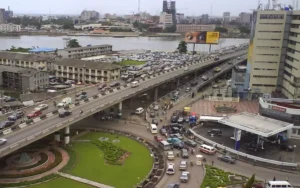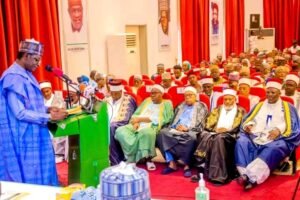
By David Akinmola
The World Bank has approved a $300 million loan for Nigeria to improve the living conditions of Internally Displaced Persons (IDPs) and strengthen recovery efforts in conflict-affected regions across the country.
The financial package, announced on Tuesday, is part of the bank’s Community Resilience and Stabilization Support Project, which targets vulnerable populations in states hardest hit by insurgency, banditry, and communal clashes, particularly in the North-East and North-West regions.
According to a statement by the World Bank, the funds will be channeled into providing temporary shelters, health services, education support, and livelihood opportunities for millions of Nigerians displaced from their homes due to ongoing insecurity.
“Millions of Nigerians have been displaced by conflict, forcing families to abandon their communities and livelihoods. This support will help restore basic services, rebuild infrastructure, and provide opportunities for displaced households to regain stability,” the statement read.
The loan, which will be managed by the Federal Government through relevant ministries and agencies, will also prioritize women, children, and persons with disabilities, who make up a significant portion of IDPs across the country.
Data from the National Commission for Refugees, Migrants and Internally Displaced Persons (NCFRMI) indicates that Nigeria currently has over 3.2 million internally displaced persons, the highest in Africa, with the majority residing in camps or host communities in Borno, Adamawa, and Yobe States.
Speaking on the approval, Shubham Chaudhuri, World Bank Country Director for Nigeria, said the facility is designed to provide “urgent and sustained interventions” to help displaced persons transition from emergency relief to long-term recovery.
“The focus is on creating resilience by improving access to social services, fostering community-driven development, and enabling economic reintegration for displaced persons and host communities,” Chaudhuri stated.
The project will be implemented over a five-year period, in partnership with state governments and humanitarian organizations, and will also support skills acquisition programs to reduce poverty and dependence on humanitarian aid.
The World Bank’s intervention comes as Nigeria grapples with rising insecurity and humanitarian challenges, with international agencies warning of worsening conditions if urgent action is not taken.








